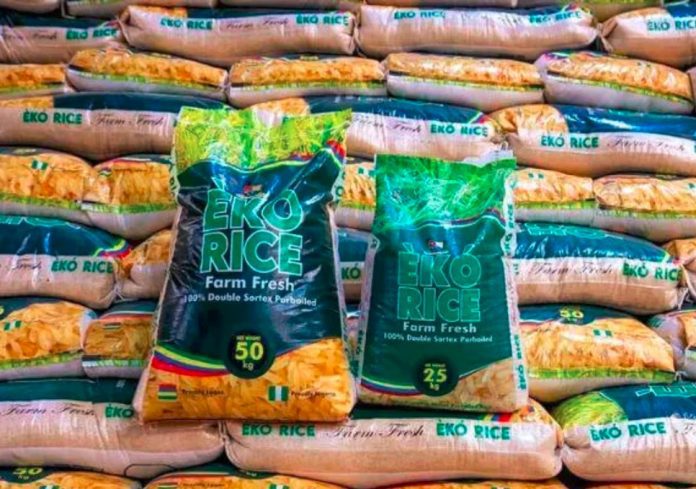News in brief: The Lagos state government will introduce Eko Rice to the market by June 2023. Due to limited supply, the rice will be gradually distributed, and not be available to all households.
The Lagos state government has announced that its Eko Rice will hit markets by June 2023. Dr Oluwarotimi Fashola, the Special Adviser to the Governor on Agriculture and Rice Mill Initiative, confirmed that a 50Kg bag will go for between â¦32,000 and â¦33,000 while the 25Kg bags will cost about â¦17,000 to â¦18,000.
However, it appears that not everyone in the state will be able to buy the Eko Rice. Fashola said his ministry will distribute the rice gradually, appealing to Lagosians to understand the constraint.
“Quality is important and we will not lower our quality because we want to have our masses. It is a gradual process and the distribution is a monthly thing,” he said. “Donât forget Lagos has a 20 million plus representative, and we are only with a mill and it is only serving a fraction of that, so you wouldnât expect it in every household.”
The Imota Rice Mill in Ikorodu, Lagos, where the rice are coming out from has the capacity to produce 2.8 million 50Kg bags a year at full capacity. With the over 20 million people that live there, that puts it at 7Kg per person a year. Meanwhile, the per capita consumption rate of rice in Nigeria is about 32Kg. Clearly, there is not enough from the mill, even if it runs at full capacity.
As Fashola’s comparison of price shows, the Eko Rice aims to beat the price of ‘local rice’ producers. Foreign rice (common name for rice imported into the country) sellers, who bag theirs for between â¦42,000 and â¦45,000, will not have a state-backed competitor for now.
“The same quality of rice in the major market is sold for N38,000 for the 50kg bag while us selling at N32,000 and N33,000 is not high,” he said.
For years, there have been various takes on why some Nigerians keep spending more on imported rice. Some say that it tastes and smells better as well as having a better whitish colour that is more appealing. On the other side of the aisle, a nutritionist claimed that local rice contains more nutrient and can even reduce sleep disorder!

The government had banned rice imports over land in 2016 and added seaports ban in 2022. However, the move is not having intended effects as the price of the staple continues to rise. Also, Nigeria’s 5 million tonnes production output cannot satisfy local demand, which exceeds 6 billion kg per year. So, imports are satisfying the deficit despite the ban.



